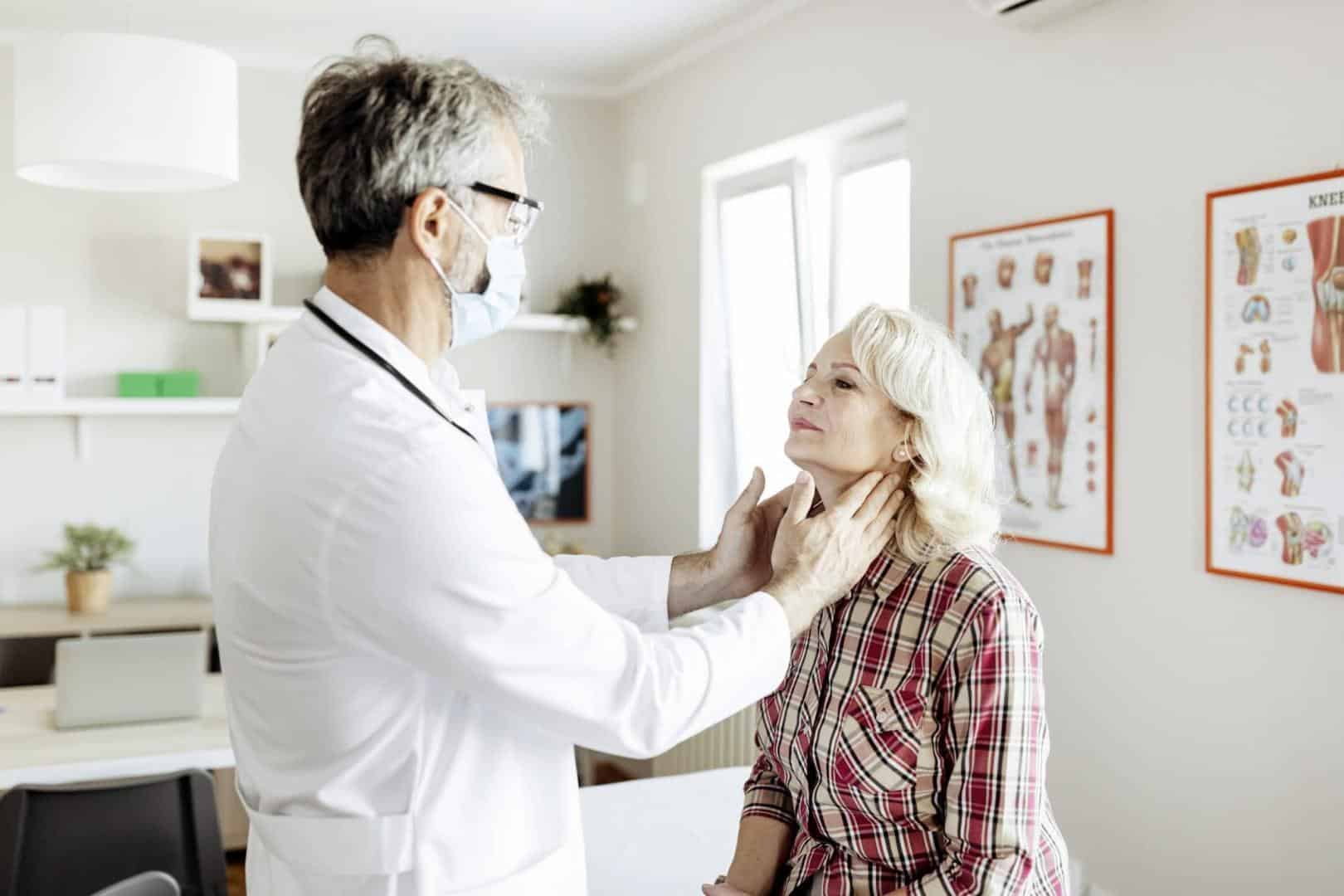There are a lot of reasons to visit an ear, nose and throat (ENT) specialist, also known as an otolaryngologist. Below we review four of the most common ones, including their symptoms and treatments.
Ear Infections

Ear infections occur when fluid becomes trapped in the middle ear and creates a breeding ground for bacteria. This happens when the Eustachian tubes, which connect the middle ear to the back of the throat, become blocked due to inflammation. Ear infections are common in children because their Eustachian tubes are narrow and horizontal.
Symptoms of an ear infection include:
- Pain/pressure in the ears.
- Fluid discharge.
- Loss of balance.
- Trouble hearing.
- Fever.
- Nausea/vomiting.
Ear infections sometimes clear up on their own, but if they are severe or persistent, they may require antibiotics.
Strep Throat
Strep throat is caused by a family of bacteria called Streptococci. It occurs when the throat becomes infected with this germ.
Symptoms of strep throat include:
- Sore throat.
- Trouble swallowing.
- Enlarged tonsils/lymph nodes.
- White spots on the tonsils/throat.
- Fever.
- Body aches.
- Fatigue.
Strep throat is treated with antibiotics, over-the-counter pain relievers, gargling salt water, rest and hydration.
Sinus Infections
Sinus infections occur when inflammation causes fluid to become trapped in the sinuses, which are air-filled pockets located behind the cheeks, nose and forehead. You’re especially likely to develop a sinus infection during cold and flu season.
Sinus infections may be either acute (short-term) or chronic (persisting 12 weeks or longer).
Symptoms of a sinus infection include:
- Facial pain/pressure.
- Headache.
- Nasal drainage.
- Congestion.
- Cough.
- Fever.
- Fatigue.
- Toothache.
Sinus infections can be treated with saline rinses with a Neti pot from Vine Discount Medical Supply, antibiotics and, in certain chronic cases, surgery.
Sleep Apnea
Sleep apnea is a sleep disorder characterized by pauses in breathing during sleep. There are three types of sleep apnea:
- Obstructive sleep apnea is caused by the muscles in the back of the throat collapsing into the airway.
- Central sleep apnea is caused by the brain failing to give the proper signals to the muscles that control breathing.
- Complex sleep apnea is a combination of obstructive and central.
Symptoms of sleep apnea include:
- Frequent awakenings during the night.
- Gasping/choking noises during sleep.
- Feeling unrefreshed in the morning.
- Dry mouth.
- Sore throat.
- Headache.
- Mood swings.
- Depression.
Sleep apnea may be treated with lifestyle changes, oral appliances, continuous positive airway pressure (CPAP) therapy or surgery. For more information about these conditions or to schedule an appointment with an expert ENT, call The House Institute today.